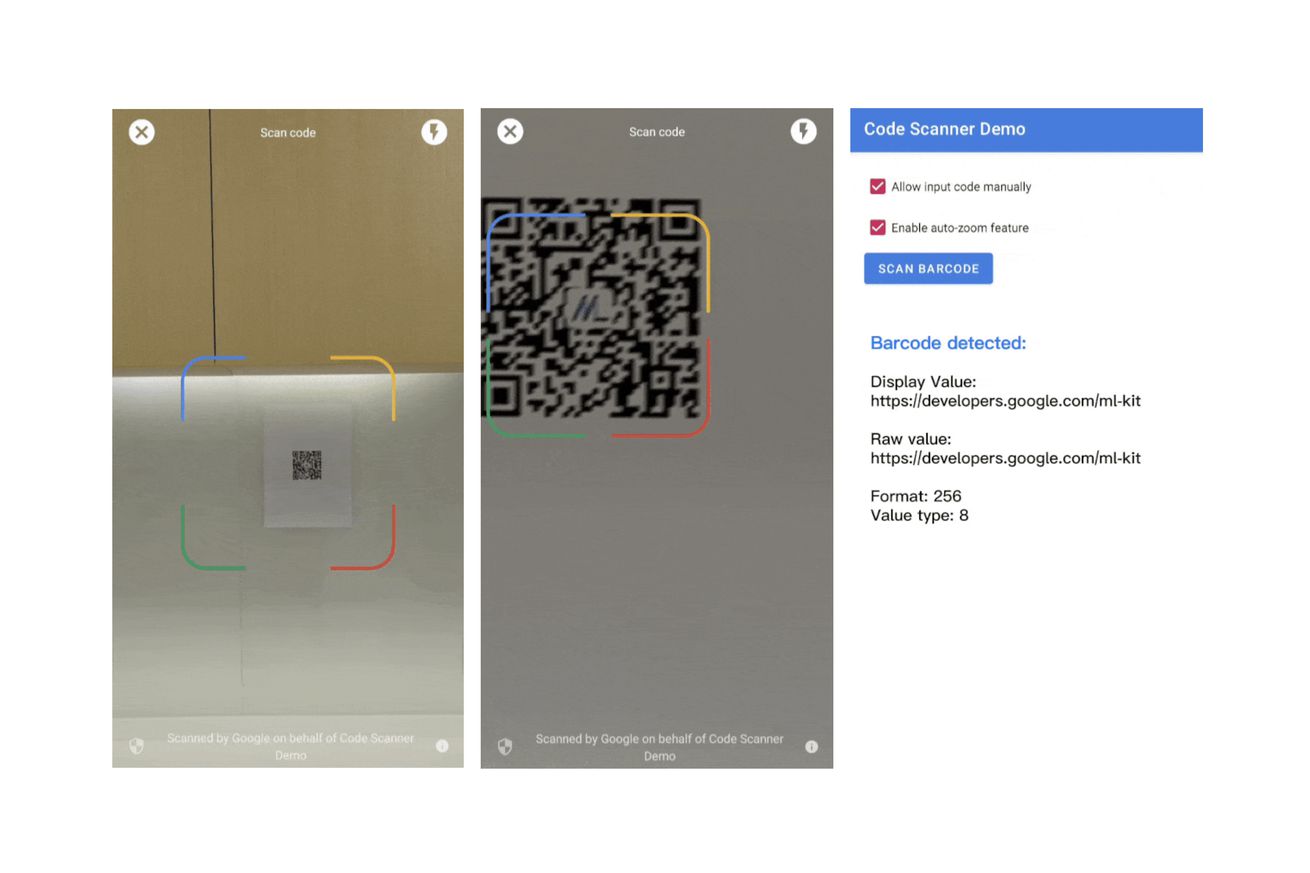
Your Android phone may soon read QR codes from across the room
You might soon not have as much trouble reading far away QR codes on your Android phone. Google is working on a new code scanner that automatically detects a QR code in the camera frame, zooms in, and reads it. The feature isn’t quite making its way to devices just yet — but it’s in the latest APIs Google is making available to developers.
Specifically, it's Google’s code scanner API that’s been updated with the new ability. It works in Google’s QR Code Scanner system app, but can also be implemented into other apps.
If developers implement the code scanner API, users won’t have to grant camera permissions — saving developers time by not having to build a custom experience. The API leverages Google’s on-device machine learning to interpret QR codes, and it only outputs a Barcode object to the app to maintain privacy for users. (It’s not clear what exactly is happening under the hood, but AI upscaling is a thing for other kinds of media.)
As pointed out by Android expert Mishaal Rahman, the new auto-zoom function is available in the new bundled ML Kit Barcode Scanning API library version 17.2.0 that can be built into apps (as well as unbundled version 18.3.0, which Google Play Services can download). It’s also included in version 16.1.0 of the code scanner API alone.
Rahman wrote that it’s possible the easy QR code scanning feature could make its way onto devices running Android 13 or newer, since their QR code scanner uses the same ML Kit Barcode Scanning library where this feature is being added. And it may already be rolling out via GMS, the proprietary parts of Android that Google licenses to select manufacturers, according to a screen recording from X (formerly Twitter) user AssembleDebug.
It’s not clear how effective the new feature will be on Android smartphones outfitted with sub-par cameras, of if it will make it to devices other than Google’s own Pixels, if it broadly arrives at all. But the feature is kind of neat, and hopefully it shows up in developers’ apps and widely-released devices soon.

